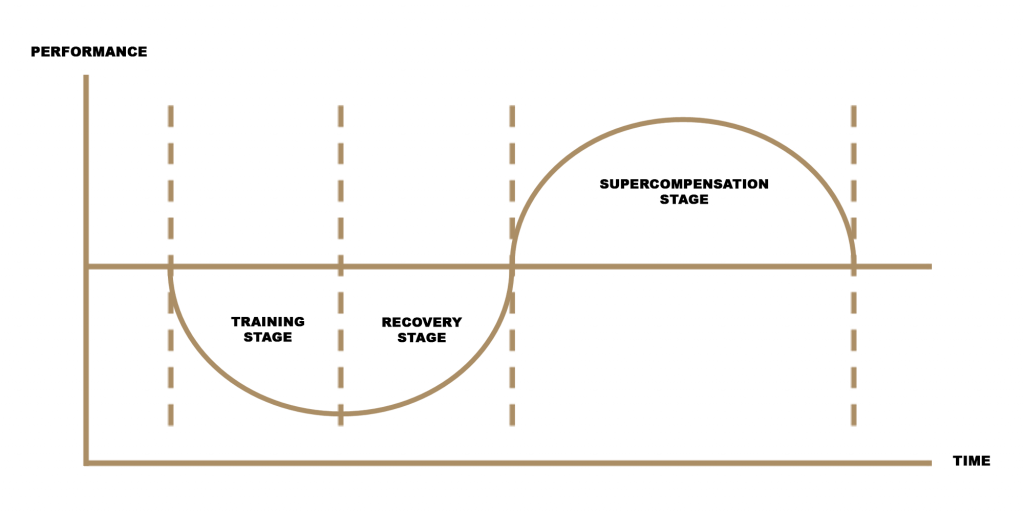In this post, we’ll unpack all you need to know about Supercompensation, defining exactly what it is, the science behind how it works, the 4 phases, how we can leverage it and more.
What Is Supercompensation?
Supercompensation refers to the adaptive cyclical process that the body goes through in response to stress. It is key to optimising training programmes and ultimately maximising the success of our fitness goals.
The Science
The body is an adaptation machine. It’s constantly adapting so it can better meet the demands of the environment.
Therefore, in the context of strength and hypertrophy training, whenever the body is subjected to stress (in the form of weight), it adapts itself so that in the future, it can respond to the same level of stress (weight) more effectively. This is Supercompensation.
Common signs of this phenomenon include improved performance, decreased training heart rate, decreased resting heart rate and increased energy.
The 4 Phases Of Supercompensation
There are 4 phases of the Supercompensation cycle. They are: Training, Recovery, Supercompensation and Detraining. Below we’ll unpack each phase.
- Training
Training provides the necessary stimulus and stress your muscles need to tear.
If your training load is too high, your muscles will struggle to fully recover in time for the next session. If your training load is too low, you won’t provide your muscles with the necessary stimulus and stress they need to breakdown.
Training creates the need for recovery.
- Recovery
Recovery provides the necessary rest and nutrition your muscles need to repair.
If your recovery period is too short (overtraining), your muscles will not repair and grow and your levels of performance will decrease. If your recovery period is too long, your muscles will begin to atrophy and your levels of performance will decrease (detraining). Studies show that protein synthesis takes 48-72 hours.
Recovery leads to Supercompensation.
- Supercompensation
Supercompensation provides the necessary adaptation your muscles need to grow.
During this phase, your muscles respond by adapting to past stimuli and stress so that they can respond to the same stimuli and stress more effectively in the future.
- Detraining
Detraining refers to the natural atrophy of your muscles that follows Supercompensation if no further stimulus is introduced.
However, there is an optimal temporal window whereby if you re-introduce a stimulus, you will once again begin the cycle.

How To Leverage Supercompensation
The body is never stagnant — it is either in a state of Supercompensation (growth) or detraining (atrophy). Therefore, to ensure the continuous improvement of our fitness levels, we must leverage the power of Supercompensation.
The key to leveraging Supercompensation with the goal of achieving maximum muscle growth in the minimum amount of time is to optimise training and recovery phases.
We can optimise our training phases by ensuring we are providing the optimal amount of stimuli and stress the muscles need to breakdown. We can optimise our recovery phases by ensuring we are providing the optimal amount of rest and nutrition the muscles need to repair and grow.
As with most things when it comes to bodybuilding, the optimal training and recovery points will be unique for each individual.
Summary
Supercompensation is the adaptive cyclical process that the body undergoes in response to stress. Through this process, not only is the body able to achieve its base level of performance, but it develops the capacity to achieve a superior level of performance.
The key to leveraging Supercompensation in order to maximise muscle growth is to provide the optimal amount of training muscles need to breakdown and the optimal amount of recovery muscles need to repair and grow.







